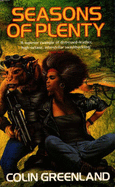As spring comes to an end, it’s time to look back over the month of May…
Book of the Month
It’s tough to narrow it down to one title this month, so I’m going to declare it a tie between two. Naomi Wood’s The Godless Boys was a very fine debut, while Conrad Williams’ Loss of Separation was another great read from a favourite author. (And this was nearly a three-way tie, because Chris Beckett’s The Holy Machine is not far behind them at all.)
Reviews
- The Holy Machine by Chris Beckett [****]
- The Afterparty by Leo Benedictus [****]
- Ten Sorry Tales by Mick Jackson [****]
- Loss of Separation by Conrad Williams [****]
- The Godless Boys by Naomi Wood [****]
- The Proof of Love by Catherine Hall [***½]
- Caroline: a Mystery by Cornelius Medvei [***½]
- The Redbreast by Jo Nesbø [***½]
- Girl Reading by Katie Ward [***½]
- Tree Surgery for Beginners by Patrick Gale [***]
- Hector and the Secrets of Love by François Lelord [***]
- Jeeves and the Feudal Spirit by P.G. Wodehouse [***]
- Issues 21 and 22 of Apex Magazine
Features
- My list of notable books for May.
- A snapshot of my reading life in May.
- I’ll be taking part in a panel discussion on short fiction in July.
- The books chosen for Fiction Uncovered.




















Recent Comments